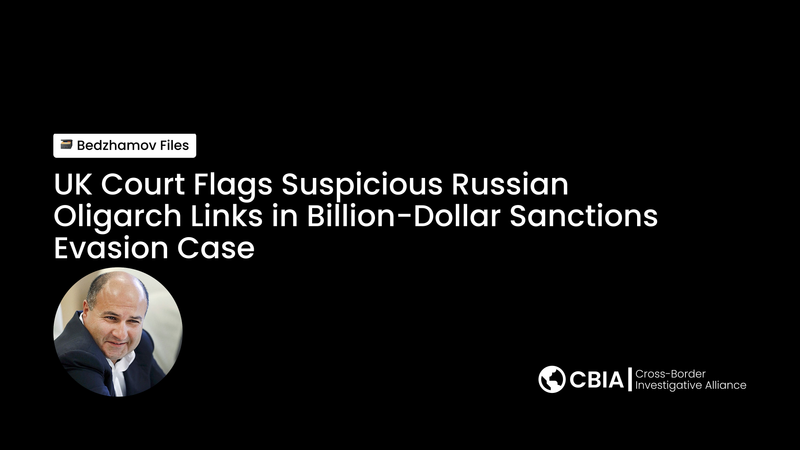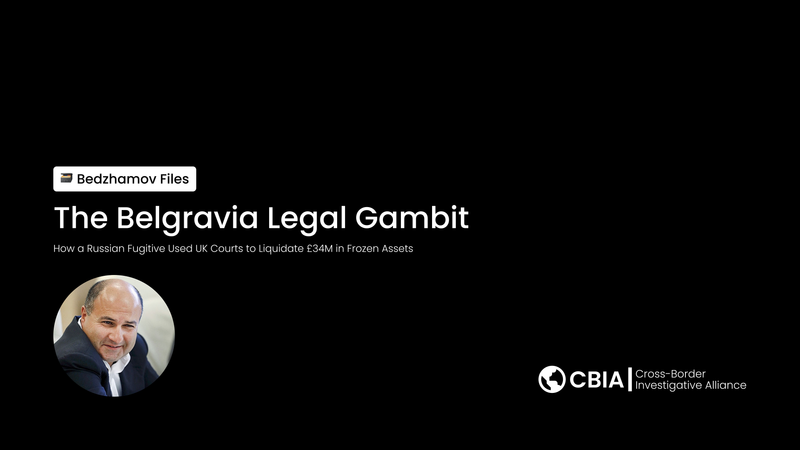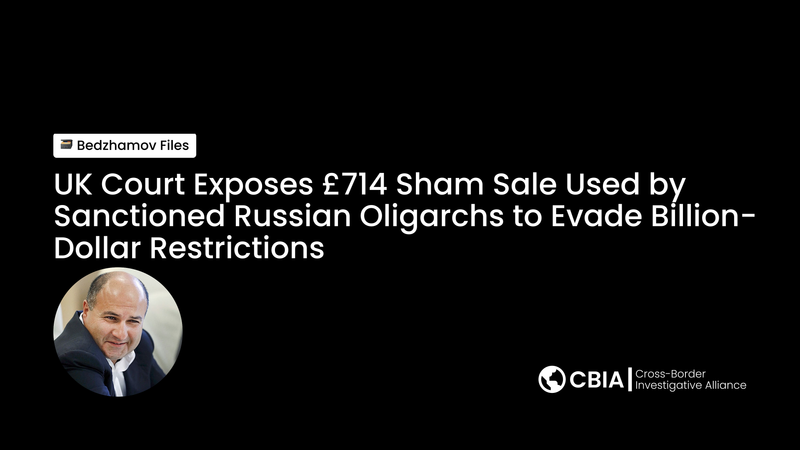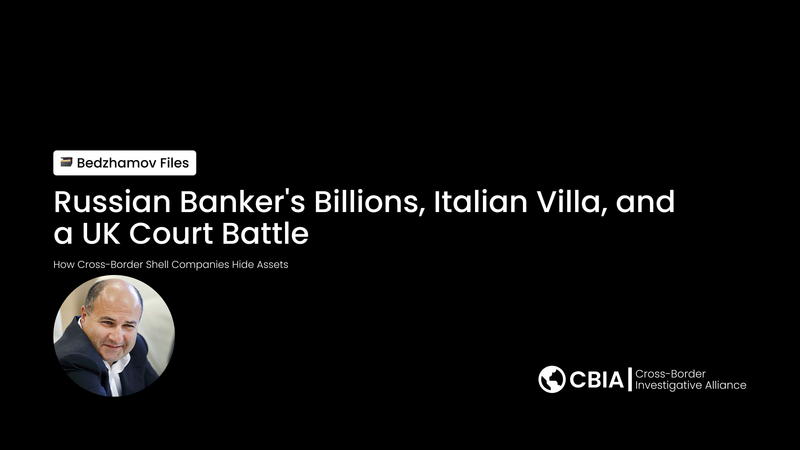The Bobsled Banker: How Russian Sports Chief Georgy Bedzhamov Used Olympic Connections to Hide $1.8 Billion in Embezzled Funds
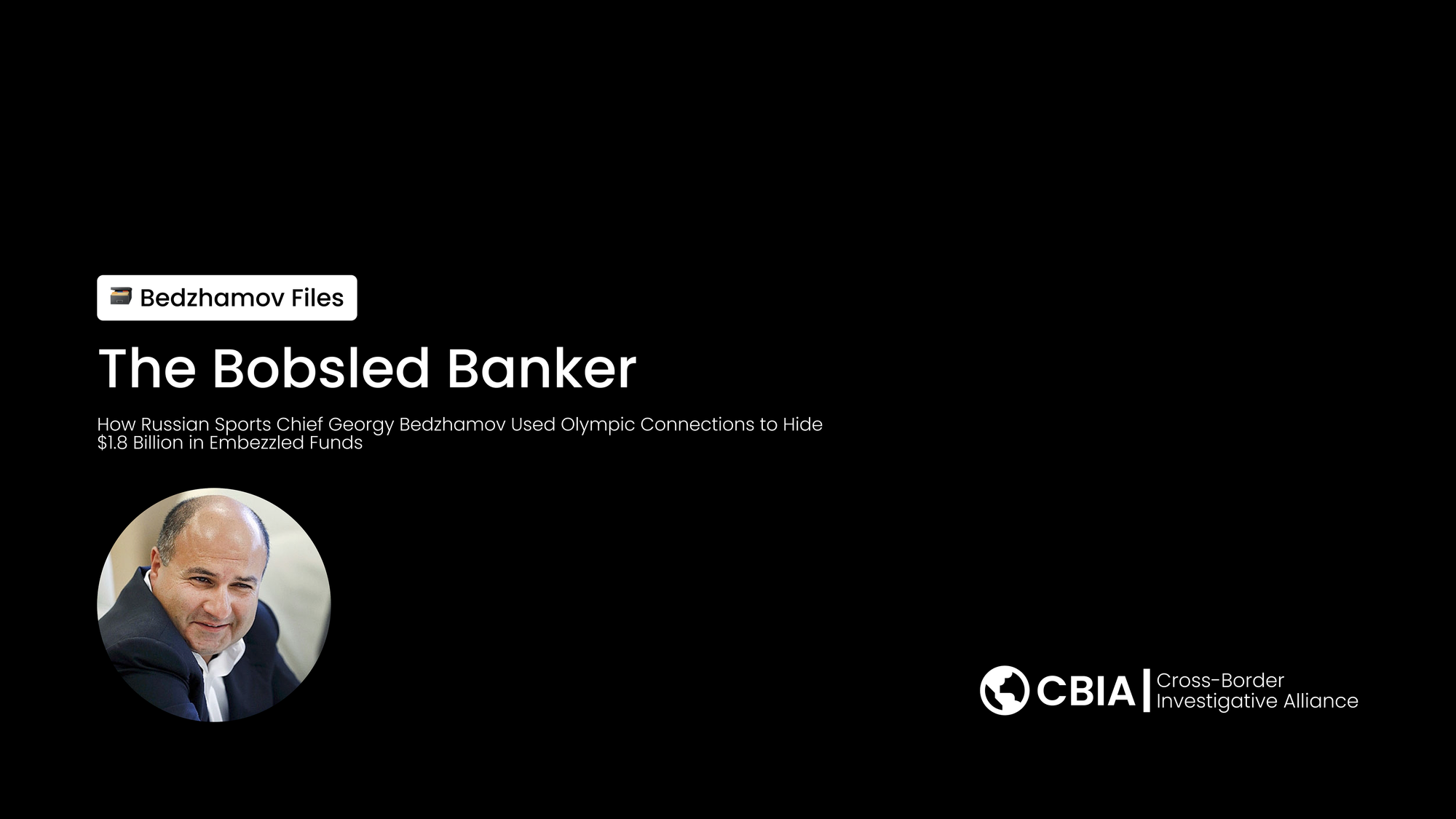
From the slopes of Olympic bobsled tracks to the courts of London's High Court, the remarkable case of Georgy Bedzhamov reveals how high-level sports administration became a cover for one of Russia's most audacious banking frauds.
Bedzhamov, who served as president of the Russian Bobsleigh Federation while simultaneously co-owning Vneshprombank with his sister Larisa Markus, orchestrated a scheme that embezzled over $1.8 billion from the Russian bank between 2011 and 2015. When the fraud was discovered, it triggered one of the largest cross-border asset recovery cases in recent history.
The scandal began to unravel in December 2015 when Markus was arrested in Russia. According to court documents, the siblings had "developed a plan" to attract large depositors "in order to fill the Bank with cash and create the possibility of committing theft". Among those who lost money were VIP depositors including family members of Russian government officials, ministries, state-owned corporations, and even the Russian Orthodox Church.
As authorities closed in, Bedzhamov fled Russia in December 2015, just days before his sister's arrest. Initially detained in Monaco on a Russian extradition request, he was later released and made his way to London, where he has remained under a court-imposed asset freeze since 2019.
The UK High Court case reveals the sophisticated methods used to hide the stolen funds. Bedzhamov employed a complex network of offshore companies and shell entities across multiple jurisdictions including Cyprus, the British Virgin Islands, and the Marshall Islands. The Pandora Papers investigation exposed how he used Cypriot law firm Demetrios A. Demetriades LLC to backdate company transfers and disguise asset movements.
One particularly revealing aspect of the scheme involved a series of circular loans worth over $50 million. Money would flow from obscure UK partnerships to a Cypriot shell company called Felarco Management Limited, which would then immediately loan the same amounts to Bedzhamov. These loans often contained misspellings of his name and lacked basic elements like repayment schedules, suggesting they were designed to obscure the money trail.
"Often loans without a clearly defined repayment period and not requiring repayment, which are carried out by one person, but are actually made in the interests of another person — these are transactions that have signs of money laundering," explained Ilya Shumanov, director of Transparency International in Russia.
The case has now reached a critical juncture in London's High Court, where the collapsed Vneshprombank is seeking to recover US$1.34 billion from Bedzhamov. However, the proceedings have been complicated by UK sanctions against Russian entities following the 2022 invasion of Ukraine.
The court has found "reasonable cause to suspect" that Bedzhamov's litigation is being funded by entities connected to sanctioned Russian oligarchs, including Mikhail Fridman, German Khan, and Alexey Kuzmichev. These three founded the Alfa Group and previously controlled the company funding Bedzhamov's legal defense.
Mrs Justice Cockerill noted the "unsatisfactory nature of the evidence about the sale price" when these oligarchs allegedly divested their interests for just 714 rubles (approximately $7) in March 2022, shortly after being sanctioned. The judge found multiple "overlapping indications which suggest that the transfer and sale were not arms length transactions".
The investigation has also revealed Bedzhamov's use of his London mansion as collateral in the asset-hiding scheme. Worth millions, the Belgrave Square property became the subject of a fictitious debt claim designed to prevent Russian authorities from seizing it.
Meanwhile, Markus was convicted in May 2017 and sentenced to nine years in prison for embezzling over $1.8 billion from Vneshprombank. Russian authorities continue searching for hidden assets to cover the bank's obligations, which have risen to 218 billion rubles (around $3 billion).
The case highlights how elite sports positions can provide cover for financial crimes. Bedzhamov's role as president of the Russian Bobsleigh Federation gave him international legitimacy and connections while he systematically looted a major Russian bank.
As the legal battle continues in London, with Bedzhamov living on a court-approved allowance of £120,000 ($160,000) per month while under asset freeze, the case serves as a stark reminder of how sports governance can be exploited by those seeking to legitimize criminal enterprises.
The outcome of this cross-border legal fight will have significant implications for international asset recovery efforts and the ability of domestic courts to pierce the veil of offshore financial structures used to hide the proceeds of major financial crimes.
Sources:
[1] UK High Court of Justice, Vneshprombank v Bedzhamov Judgement, May 2024
[2] Organized Crime and Corruption Reporting Project (OCCRP), "Fugitive Russian Banker Used Cypriot Law Firm to Hide Assets, Move Money," 2024


